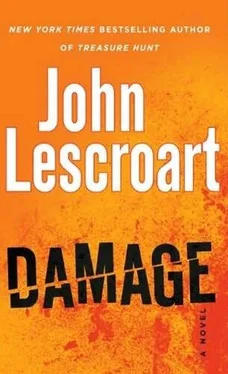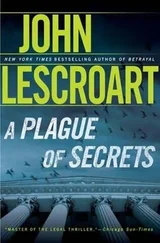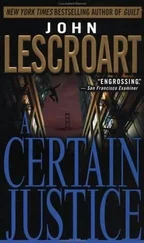
Farrell only needed twelve to issue an indictment, but as it turned out, he persuaded fourteen of the grand jurors to come in on their Friday off for the emergency session. Now and for the past hour and a half they were seated in front of Amanda Jenkins and listening attentively, many taking notes, as she finished outlining her case against Ro Curtlee.
Jenkins knew that in spite of the earlier Sandoval conviction, this was going to be close. She needed twelve votes to indict, and she was all but certain that she had ten, but all four of her skeptical jurors had independently peppered each of the witnesses so far with questions about the lack of physical evidence in the Nuñez case.
And one of them, a retired schoolteacher named Julian Ross, had in the course of his questions gone from the specific to the general, which Amanda feared in this case might sway the others: What had taken so long to bring this ten-year-old case to the grand jury? Jenkins had assured them that while she could not discuss specifics, it was for delays that had nothing to do with the strength of the evidence and that they should not consider it. Didn’t Inspector Glitsky find it unusual that police had uncovered no physical evidence implicating Mr. Curtlee in the Nuñez murder? Glitsky had emphasized the motive, the way the body was found, and other similarities between the killings.
Amanda was nearly to the end.
Farrell had told her to let them take a short recess before they received instructions and began to deliberate. He had something more he wanted to bring before the grand jury.

And now here Farrell was, sitting at the witness stand. He’d come up during the break after Amanda had called him on her cell phone. A couple of clerks from the DA’s office had accompanied him, one of them pushing a dolly that held a good-size cardboard box, which they’d picked up and deposited on the evidence table in front of him.
Farrell’s presence here was extremely problematic, to say the least. He knew that, if not political suicide, the legal fallout of having the district attorney be a witness in his own case would be enormous. Certainly the courts would say that, with the chief prosecutor as a witness, the office would never be permitted to continue handling the matter. They might even toss out any indictment as a product of prosecutorial misconduct. He could see the words like unethical and indefensible appearing in the ultimate decision.
Farrell knew that what he was supposed to do was call the attorney general’s conflict staff and turn the case over to it. And if he hadn’t known it, Jenkins had told him that three times in the five minutes before he took the stand.
He flat didn’t care. At least if I get run out of office , he thought grimly, I can wear any goddamn T-shirt I want .
So they had cleared everyone from the room except Amanda, Farrell, and the grand jurors. What was happening here would remain secret until a transcript was prepared and turned over to the defense. And in the meantime, hopefully Ro Curtlee would be behind bars while they regrouped and formed a plan to keep him there. Even if it was the AG who ended up with the case, Farrell and his office would have done what they could.
And then it began.
Under questioning by Jenkins, Farrell told the grand jury why he was before them. “Yesterday afternoon, I received a telephone call from Cliff Curtlee, the father of Ro. He had come into the information that I was planning on convening this grand jury at its regular time next Tuesday, when I would present the evidence that you’ve heard today and seek a no-bail indictment against Ro.”
“Tell the grand jury what he told you,” Jenkins said.
“He said to me, and I remember the quote exactly. ‘I don’t want this grand jury thing to move forward. It would be a bad thing for you personally if it did.’ ”
Suddenly Farrell had to grip the front rail of the witness box, almost as though he were going to faint. Swallowing, blinking back his emotions, he struggled to regain his composure. “Excuse me,” he said. “This is difficult.”
Jenkins had the box he’d brought earlier into the courtroom marked as an exhibit and put it in front of him. “Tell us, please, do you recognize the contents of this box?”
“I do.”
“Will you please show the contents to the grand jury.”
Opening the top of the carton, Farrell reached in with both hands, lifted Gert’s body out, and laid it gently on the table. Giving her a last loving pet, he looked up at the members of the jury, several of whom appeared stricken.
“This was my dog, Gert. She was on the street in front of my girlfriend’s place of business yesterday.”
Jenkins then asked. “Mr. Farrell, what if anything did you do with Gert’s body?”
“I had it taken to the police laboratory early last night for testing.”
Amanda turned to the panel and explained. “Mr. Farrell can’t testify about the results of the test because he didn’t do them himself, but what he was told by the lab techs explains what he did next, which is why I’m going to ask him, ‘Mr. Farrell, what did you learn from the lab?’ ”
Farrell couldn’t keep the emotion out of his voice. “Somebody poisoned my dog.”
“Mr. Farrell, you talked about your partner’s place of business. What is that place of business?”
“She runs a rape crisis center on Haight Street.”
“Does it have surveillance equipment?”
“It does.”
“Based on what the lab told you, did you go and download some photographs from that surveillance equipment?”
“I did.”
Jenkins produced an eight-by-ten black-and-white photo of the BMW Z4 and had it marked as an exhibit. “According to the surveillance equipment, when was this photo taken?”
“Right about the time the dog was poisoned,” he said.
“Can you see the license number on that vehicle?” Jenkins produced a certified DMV record, had it marked as an exhibit, and handed it to Farrell. “Tell the grand jurors, Mr. Farrell, based on the photo and those records, whose car was parked near the rape crisis center just before your dog was poisoned.”
“The records indicate,” Farrell said, “that the car belonged to Ro Curtlee.”
Jenkins let a long minute pass before she concluded. “Questions from the grand jury? Mr. Farrell, you’re excused.”
After being admonished, like every other witness, by the fore-person not to discuss his testimony, Farrell got up and, nodding soberly as he passed Jenkins, walked out of the room.

Down in his office, Wes closed and locked his door behind him. His whole body was shaking with the cynical enormity of what he’d just done. Crossing over to the foosball table, he grabbed two of the near handles and put all of his weight on them. Closing his eyes, he sucked in a deep breath, swallowing against the urge to throw up.
He’d been through difficult times before in his trials, his failed marriage, with his children, in his life, but never before had he completely abandoned his essential view of himself as a good man, an honest man, a man of good character. And he had just-willingly, knowingly, with aforethought-done exactly that.
He didn’t kid himself. He knew that what he’d said and shown the grand jury might have been marginally relevant-even there he was on thin ice. But he also knew that the way he did it, appearing as a witness in his own prosecution, was at very best unprofessional if not flat-out unethical. He had done something he knew he wasn’t supposed to do.
Читать дальше















